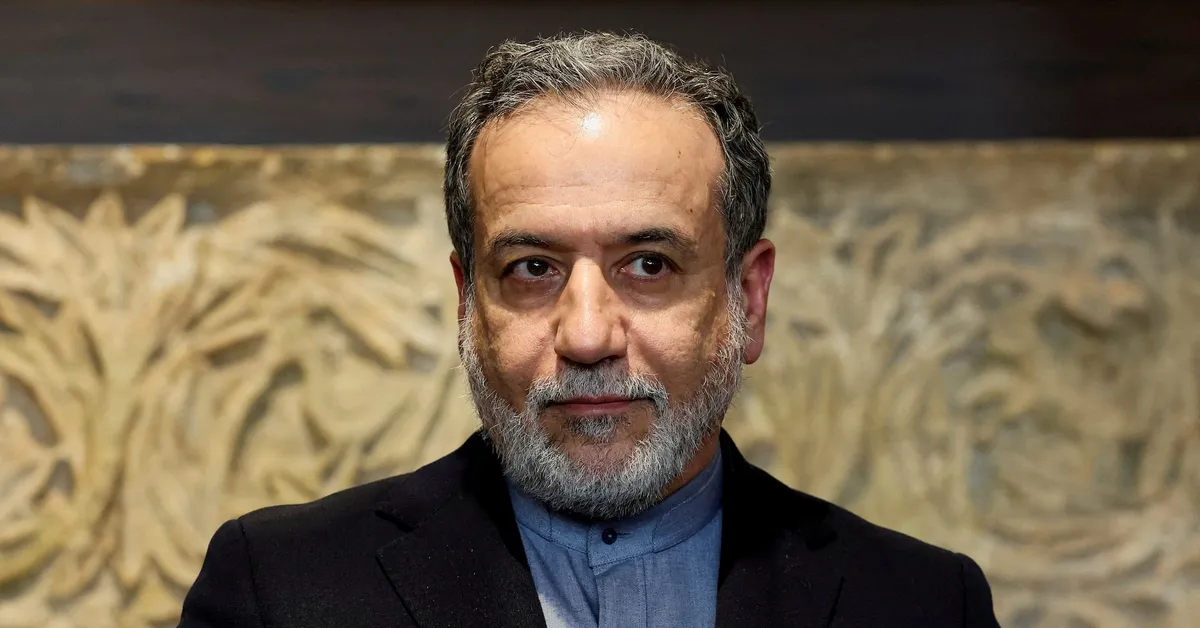
As the weekend approaches, Iran is preparing for crucial discussions with the United States regarding its nuclear program, albeit with a sense of wariness and skepticism. Iranian officials have conveyed to Reuters their lack of confidence in the potential progress of these talks, coupled with deep-seated suspicions about U.S. intentions.
The discussions were announced on Monday by U.S. President Donald Trump, who has consistently threatened military action against Iran unless a favorable deal is reached. Since his return to the White House in January, Trump’s rhetoric has escalated, creating a tense atmosphere ahead of the scheduled negotiations.
Trump has indicated that the talks set for Saturday in Oman will be direct; however, Iranian Foreign Minister Abbas Araqchi reiterated Tehran's preference for indirect negotiations. Araqchi argues that indirect talks could foster a more genuine and effective dialogue, citing U.S. pressure and threats as reasons for this stance. He stated, "Indirect negotiations can guarantee a genuine and effective dialogue," in an interview with the Iranian state news agency IRNA.
The upcoming talks will be led by Araqchi and Trump's Middle East envoy Steve Witkoff, with mediation from Oman's Foreign Minister Badr al-Busaidi. A U.S. source familiar with the planning confirmed that Witkoff would indeed lead the American delegation, emphasizing that the discussions would focus broadly on finding a nuclear deal rather than diving into technical specifics.
Iranian officials have indicated that they would require tangible gestures from the United States, such as lifting some sanctions or unfreezing assets, before considering any face-to-face meetings. A regional diplomat noted, "The Iranians told us that direct talks are possible but there must be a goodwill gesture."
Russia has expressed support for both direct and indirect talks between Iran and the U.S., viewing them as an opportunity to de-escalate tensions in the region. Kremlin spokesman Dmitry Peskov remarked that certain contacts, both direct and indirect, are indeed planned in Oman. Additionally, Russia's lower house of parliament ratified a 20-year strategic partnership with Iran, signaling the strengthening of military ties between the two countries.
The attempts to resolve the dispute over Iran's nuclear program, which Iran asserts is for peaceful purposes, have been ongoing for over two decades. However, Western countries perceive it as a precursor to the development of nuclear weapons. The situation intensified in 2017 when Trump unilaterally withdrew from the 2015 nuclear agreement, which involved six world powers, including the U.S., Russia, China, France, Britain, and Germany. Since then, negotiations have stagnated.
With the Middle East experiencing significant unrest in 2023, including conflicts in Gaza and Lebanon, as well as military strikes in Yemen and ongoing confrontations between Iran and Israel, Trump's threats of military action have heightened anxiety across the oil-exporting region. Iranian officials have interpreted these threats as an attempt by the U.S. to coerce the Islamic Republic into making concessions.
According to Iranian officials, the U.S. aims to address a variety of issues, including Iran's regional influence and its ballistic missile program, which they insist should not be included in the discussions. One senior Iranian official firmly stated, "Our nuclear program cannot be dismantled. Our defense is non-negotiable." Concerns were also raised about the security implications of disarming while Israel maintains its own nuclear arsenal.
Israel, which views Iran as its primary regional threat, has expressed its support for a military option should diplomatic efforts fail. Israeli Prime Minister Benjamin Netanyahu, who was present during Trump's announcement of the talks, suggested that while a diplomatic solution would be ideal, it must involve a comprehensive dismantling of Iran's nuclear capabilities. "Let them drag out the talks and then the option is military," Netanyahu warned on Tuesday.
In response to Trump's military threats, Iran has maintained its stance, asserting that it will not be intimidated. The Islamic Republic has endured numerous sanctions over the years, and Iranian military leaders have previously signaled their willingness to disrupt regional oil exports, significantly impacting global energy supplies. The upcoming discussions in Oman will be critical in determining the direction of U.S.-Iran relations and the future of Iran's nuclear program.